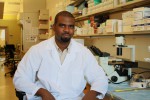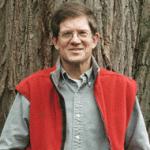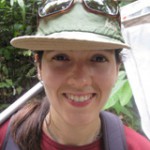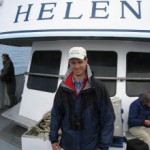Alex C. Engel

Immunology The Engel lab studies how immune sensors of are positioned within immune cells to recognize pathogens and mount appropriate responses. Continue reading »

Immunology The Engel lab studies how immune sensors of are positioned within immune cells to recognize pathogens and mount appropriate responses. Continue reading »

Plant Biology and microbiology Prochlorococcus, a cyanobacterium that has evolved to dominate vast regions of the world’s open oceans, is a significant model system for advancing our knowledge of photosynthesis and marine ecosystems. Continue reading »


Sphingolipids are vital components in all eukaryotes. The roles of sphingolipids in the moss Physcomitrella patens may be investigated by altering expression of sphingolipid genes using RNA interference. Continue reading »

Evolutionary ecology Where, why, and how are questions my students and I ask while sitting lakeside in Isle Royale observing tadpole and dragonfly larvae interact…… Continue reading »

The genetics of seizure disorders In my research, I am trying to better understand the genetics that link nutrition and metabolism to seizure disorders such as epilepsy. Continue reading »

Neuroscience and animal behavior I’m interested in bird songs and the brains that produce them…. Continue reading »

Forest ecology Natural and human-use disturbances have played a role in shaping communities and ecosystems in Hopkins Forest…… Continue reading »

Ecology of plant-animal interactions Plants use many strategies that ensure reproductive success—some are subtle, others are explosive…… Continue reading »

Microbiology Agrobacterium tumefaciens injects some of its DNA into plant cells, co-opting the plant cell to provide food for it and causing “plant cancer.” How do plants defend themselves, and how do bacteria thwart those defenses?… Continue reading »

Evolution Speciation is the process in which an ancestral lineage splits into two distinct ones, which eventually become fully reproductively isolated. How does this isolation evolve and how do lineages become distinct?… Continue reading »

Ecology of mutualisms Mutualisms are interactions between species where both benefit, but the effects of mutualism can vary dramatically over both space and time. I study the causes of variation in the outcome of mutualism and the consequences of this variation for population and evolutionary dynamics. Continue reading »

Neuroscience Which neural populations and neural networks in the brain play an important role in maintaining homeostasis, and how does their activity affect animal physiology and behavior?… Continue reading »

Developmental Biology How did the annelid get its segments?…… Continue reading »

Molecular physiology Dieting: how does it impact your cardiovascular system? your body temperature? your longevity?… Continue reading »

My lab investigates molecular mechanisms underlying sleep, arousal, startle, and grooming behaviors. Recent work includes molecular and genetic characterization of the role of Dopamine Receptor in grooming and sleep in Drosophila melanogaster. Continue reading »